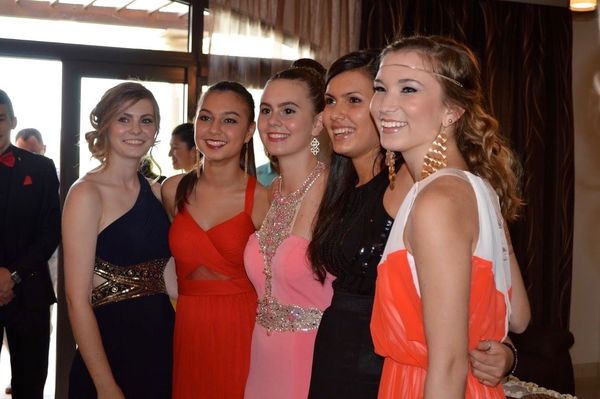Dear Tinder,
I remember that fateful day when we first made each other's acquaintance. My naïve (and newly single) high school self was sitting around, checking my Instagram and feeling desperate for male attention when I first heard those classic five words. “Have you heard of Tinder?" my friend had asked me from across the room. Of course, my answer was no, but soon we both learned what it was as we downloaded the app and embarked on the journey of the next generation of online dating.
After choosing a flawless collection of photos from our Facebooks and composing the perfect bio that showed we were super cool and fun without trying too hard, we were ready for action. As we began scrolling through the male population of Tinder users, it didn't take us long to realize that there were very few guys we would classify as a 10 out of 10, and more guys whose chest tattoos, shirtless mirror photos, and bios full of winky faces landed them more in the 3 to 4 category. It appeared that most attractive, normal men could actually meet women in real life without the use of a dating app. Go figure.
And of course, once anyone managed to swipe left long enough to find someone worth actually pursuing a potential conversation with, we encountered the issue of uncomfortable Tinder conversations. Tinder has successfully given boys everywhere the opportunity to use the painfully corny (and often inappropriate) pick-up lines they've been saving up for years now. Conversation starters on Tinder can range anywhere from funny and lighthearted to borderline frightening. I can't even tell you how many times I've hit the “block user" button faster than you can say “isn't this borderline sexual harassment?" After a few weeks of keeping a Tinder account and receiving significantly more unsettling messages than normal ones, I deleted the app. But of course, a few weeks later I would find myself back in a situation that compelled me to re-download it. And thus, I and every female friend I had in high school (and later college) found ourselves in a seemingly endless love-hate cycle of deleting and re-downloading Tinder until our heads were spinning.
But then, something great happened. It started as a murmur of conversation across campus, and then evolved into a full-fledged dating app trend. It's called Bumble, and it works like a lot of dating apps, except it does something pretty important: it empowers women. Using Bumble is similar to using Tinder (swipe left, swipe right, etc.), but when you match someone, the app starts a timer on the match for 24 hours. In those 24 hours, the GIRL has to send the first message. The guy can't initiate the conversation at all. No cheesy pickup lines, no suggestive comments, nothing. If the girl lets 24 hours pass without starting a conversation, the match expires and disappears from your match list. Power to the female.
This revolutionary approach to online and app dating was actually created by former Tinder co-founder Whitney Wolfe, who left Tinder after filing a sexual harassment complaint against her co-founder and ex-boyfriend Justin Mateen. According to Wolfe's claims, Mateen sent her harassing text messages following their break-up. What an appropriate fate for Tinder executives. This explains the “women in charge" aspect of Bumble conversations, and the slogan “classy girls Bumble." Right on, Whitney.
Finally, girls everywhere are free from the awkward tone with which most males choose to initiate their Tinder conversations. If I want to message a guy and ask him how he feels about long walks on the beach, sushi and pugs, then that's how our conversation starts. Granted, it doesn't solve every problem we had on Tinder – guys wearing necklaces seem to be abundant on any dating app – but it's an improvement. In a culture where so much of dating and courtship seems to rely on men making the first move, Bumble is a win for women because it puts the power to initiate things in our hands, which is something college girls should definitely be able to get behind.





















